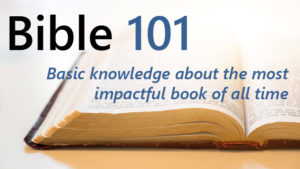by Joe Hickman
The matter of Bible translations or versions can be “tricky.” There is no “inspired” (or “God-breathed) translation available. Nor is there a Divinely “authorized” version.
Some translations have been made by careful study and close scrutiny by many people. Others are made by individuals, specific religious groups, etc. The former group tend to run less risk of bias than the latter. However, even “major” translations can be found guilty of translating from preconceived ideas rather than honesty and objectivity.
I personally believe that comparing numerous translations is very helpful in Bible study. When we compare we find the common threads of thought and we find ways of expressing ideas that help us see things obscured by unfamiliar language.
“Word study” tools are also helpful in pursuit of truth. In my opinion, these works are at least as helpful as commentaries But just as with translations, Bible dictionaries, lexicons, etc. often show the doctrinal prejudices of authors, so a guarded approach regarding interpretive statements is needed.
The most important elements in Bible study are love of truth and an honest, objective heart in the student. “”Ask, and it will be given to you; seek, and you will find; knock, and it will be opened to you.” (Matthew 7:7 NKJV)
